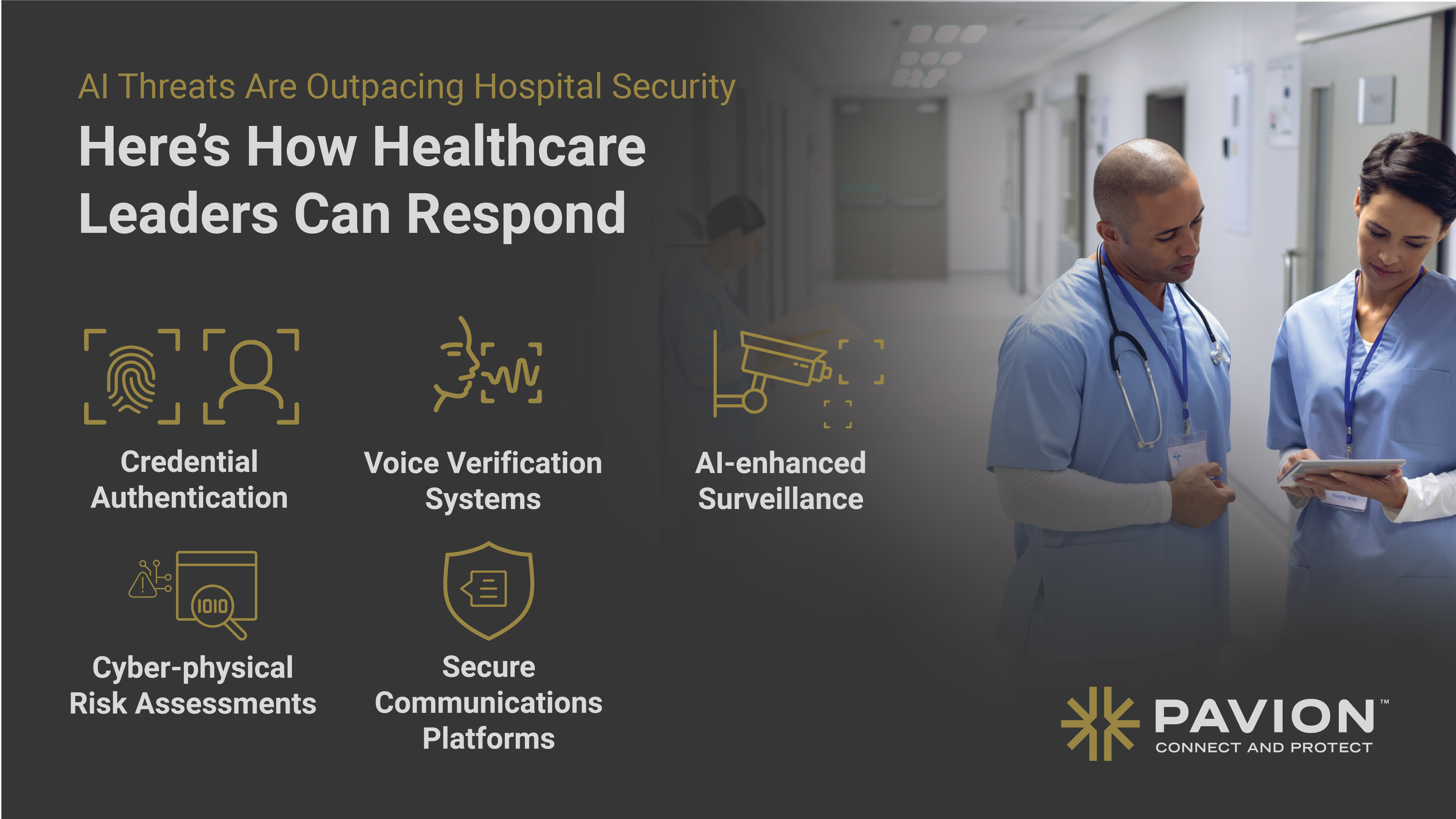
AI Threats Are Outpacing Hospital Security — Here’s How Healthcare Leaders Can Respond
Hospitals have made extraordinary strides in digital transformation—from EHR systems to connected medical devices and remote care platforms. But as healthcare delivery becomes increasingly connected, it also becomes more exposed. Today, AI-driven threats are no longer confined to cyberspace—they are targeting the physical environment of care.
According to Becker’s Hospital Review, the healthcare industry is facing a widening gap between digital confidence and physical preparedness:
- While 93% of cybersecurity leaders say their protections are adequate, only 18% have a strategy to address AI-powered physical threats.
- 71% of hospital executives say their physical security systems cannot counter deepfake badges or sensor spoofing.
- 67% of payer organizations are unaware that AI voice cloning can bypass IVR systems or in-person identity checks.
- And 82% of respondents have not conducted a cyber-physical risk audit in the last year.
These numbers paint a clear picture: AI is reshaping the threat landscape—and hospitals are not ready.
The Rise of the Cyber-Physical Attack in Healthcare
What happens when a deepfake badge fools an access control system? Or when a cloned voice tricks a nurse into granting sensitive information? These aren’t theoretical concerns—they’re active risks that exploit the gap between digital and physical security.
Healthcare is especially vulnerable. Hospitals are complex, fast-moving environments where multiple systems—clinical, administrative, and operational—must work in harmony. But most hospitals still manage physical security separately from IT, creating silos that leave critical entry points exposed.
And in a setting where every minute counts and every patient matters, the consequences of a breach aren’t just financial—they’re potentially life-threatening.
Bridging the Gap with Converged Security
At Pavion, we help hospitals and healthcare organizations rethink security holistically—aligning cybersecurity, physical access, and building intelligence into one integrated strategy.
Here’s what that looks like in practice:
- Credential authentication that defeats deepfake badges through biometric verification and intelligent access control
- Voice verification systems that can detect AI-cloned speech and prevent IVR or call center intrusions
- AI-enhanced surveillance to spot spoofed sensors, unusual access patterns, and tailgating in real time
- Cyber-physical risk assessments designed specifically for healthcare environments, to uncover vulnerabilities across departments and systems
- Secure communications and collaboration platforms for clinicians and staff, reducing exposure to impersonation or audio spoofing
In a time when attackers are getting smarter, your hospital must become more adaptive. That starts with a mindset shift—from protecting IT infrastructure alone, to safeguarding the entire care ecosystem.
Connecting and Protecting Healthcare
The mission of healthcare is to protect life. At Pavion, our mission is to Protect healthcare—Connecting the systems that save lives, and securing the environments that support them.
Whether you’re a hospital administrator, CIO, or clinical operations leader, now is the time to ask:
- Do your physical and cybersecurity systems speak to one another?
- Could your building recognize a badge that isn’t real—or a voice that’s been cloned?
- Have you assessed your cyber-physical risks in the last 12 months?
If the answer is no, let’s change that.
Contact Pavion today to schedule a healthcare-specific risk audit and learn how our converged solutions are helping hospitals like yours stay ahead of emerging threats. Source: Becker’s Hospital Review – A Blind Spot in Hospital Cybersecurity
